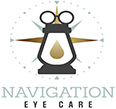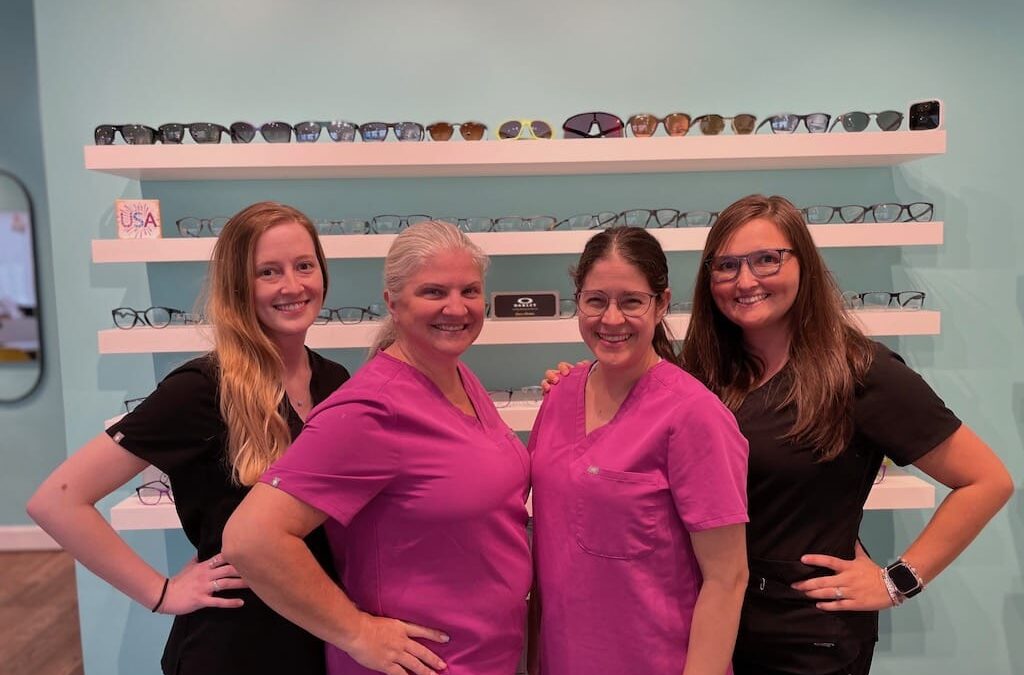Beyond the ABCs: Detecting Vision Problems in Preschoolers
As a parent, you’re probably familiar with the excitement of your child’s first day of preschool. It’s a milestone that marks the beginning of their educational journey. While you focus on preparing them with the ABCs and 123s, there’s one critical aspect that often goes overlooked – their vision. In this article, we’ll explore why detecting vision problems in preschoolers is vital and how Navigation Eye Care’s Optometrist Chesapeake VA can be your partner in ensuring your child’s visual health.
The Importance of Early Detection
Early childhood is a critical period for visual development. It’s when the eyes are still growing and learning how to work together to provide clear and sharp vision. Undetected vision problems in preschoolers can have a profound impact on their ability to learn and succeed in school.
Common Vision Problems in Preschoolers
Several vision issues can affect young children. Here are some of the most common ones:
- Amblyopia (Lazy Eye): This condition occurs when one eye is significantly stronger than the other. It can lead to poor vision in the weaker eye if not addressed early.
- Strabismus (Crossed Eyes): Strabismus is a misalignment of the eyes, where one or both eyes may turn in, out, up, or down. It can affect depth perception and coordination.
- Refractive Errors: Nearsightedness, farsightedness, and astigmatism are common refractive errors that can cause blurry vision if left untreated.
- Eye Coordination Problems: Some preschoolers may struggle with eye coordination, making it difficult to focus on close-up tasks like reading or drawing.
The Role of the Optometrist
Navigation Eye Care’s Optometrist Chesapeake VA and her team are here to help you provide quality eye care for your child’s visual health. Regular eye exams for preschoolers are essential for early detection and intervention. Navigation Eye Care’s team utilizes specialized techniques and equipment to assess a child’s vision accurately, even if they can’t yet read the eye chart, and at their developmental level.
Signs of Vision Problems in Preschoolers
Detecting vision problems in preschoolers can be challenging, as they may not be able to articulate their visual experiences fully. However, there are signs to watch for:
- Squinting: If your child often squints or tilts their head when looking at objects, it may indicate a vision issue.
- Frequent Eye Rubbing: Excessive eye rubbing can signal discomfort or eye strain.
- Poor Hand-Eye Coordination: Difficulty catching a ball, coloring within the lines, or recognizing shapes and colors may point to vision problems.
- Frequent Headaches: Preschoolers should not experience frequent headaches, so if they do, it’s worth investigating.
Early Intervention for a Brighter Future
Addressing vision problems early is essential to ensure that your child’s visual system develops correctly. Early intervention can prevent issues from worsening and may even eliminate the need for more invasive treatments later on.
Parental Responsibility
As a parent, you play a crucial role in your child’s visual health. Schedule regular eye exams with Navigation Eye Care’s Optometrist Chesapeake VA, even if your child doesn’t exhibit any apparent vision issues. Early detection and treatment can set them on
The Gift of Clear Vision
As you prepare your preschooler for their educational adventure, don’t forget to include a visit to the optometrist on your checklist. Clear vision is a gift that will empower your child to explore the world of letters and numbers with confidence. Beyond the ABCs, detecting vision problems in preschoolers is a step toward a brighter future filled with limitless possibilities.
Kids and Contacts: What Parents Need to Know about Pediatric Contact Lenses
The transition from glasses to contact lenses is a significant milestone for children. It often signifies a newfound sense of independence and confidence. However, as a parent, you may have concerns and questions about whether contact lenses are the right choice for your child. In this article, we’ll delve into the world of pediatric contact lenses and provide you with the information you need to make an informed decision. Plus, we’ll explore the role of Navigation Eye Care’s Optometrist Chesapeake VA in ensuring your child’s visual health.
Are Contacts Suitable for Kids?
Pediatric contact lenses have come a long way in recent years. They are no longer exclusively reserved for adults. In fact, contact lenses can be a fantastic option for children, as they offer several advantages over glasses:
- Improved Vision: Contact lenses often provide better peripheral vision and fewer distortions compared to glasses.
- Enhanced Self-esteem: Many children feel more confident and less self-conscious when they switch to contact lenses.
- Better for Active Lifestyles: If your child is involved in sports or other physical activities, contact lenses can offer greater convenience and comfort.
- Reduced Risk of Accidents: Glasses can sometimes break or be a safety hazard during certain activities.
The Right Age for Contacts
While there isn’t a strict age limit for contact lenses, maturity and responsibility are key factors. Typically, children as young as eight or nine can successfully manage contact lenses, but it varies from child to child. It’s essential to assess your child’s readiness to handle the responsibilities of lens care.
The Role of Navigation Eye Care
Before considering contact lenses for your child, it’s crucial to consult with Navigation Eye Care’s Optometrist Chesapeake VA. She and her team are equipped to evaluate your child’s eye health, vision needs, and overall suitability for contact lenses. Additionally, the team will educate both you and your child on proper lens care and hygiene.
Choosing the Right Lenses
There are different types of contact lenses available for children, including:
- Daily Disposable Lenses: These are convenient and require no cleaning. They are also ideal for children with allergies.
- Extended Wear Lenses: These can be worn for an extended period, but proper hygiene is essential.
- Rigid Gas Permeable (RGP) Lenses: These provide excellent vision correction but may take some time to adapt to.
- Specialty Lenses: Some children may require specialized lenses for conditions like astigmatism or myopia control.
Your pediatric eye doctor at Navigation Eye Care will help you choose the right type of lenses based on your child’s needs and lifestyle.
Teaching Proper Lens Care
One of the most critical aspects of pediatric contact lens wear is teaching your child proper lens care. This includes:
- Hand Washing: Emphasize the importance of washing hands before handling lenses.
- Lens Cleaning: Teach your child to clean and disinfect lenses as per the optometrist’s instructions.
- Hygiene: Stress the need for good hygiene to prevent eye infections.
- Follow-up Visits: Regular follow-up visits with the optometrist are essential to ensure the lenses fit well and the eyes remain healthy.
Clear Vision and Confidence for Your Child
Pediatric contact lenses can provide your child with clear vision and the confidence to tackle life’s challenges head-on. However, it’s essential to work closely with Navigation Eye Care’s experienced Optometrist Chesapeake VA and her team to ensure that contact lenses are the right choice and to receive proper guidance on lens care. With the right support and education, you can help your child enjoy all the benefits that contact lenses have to offer.

